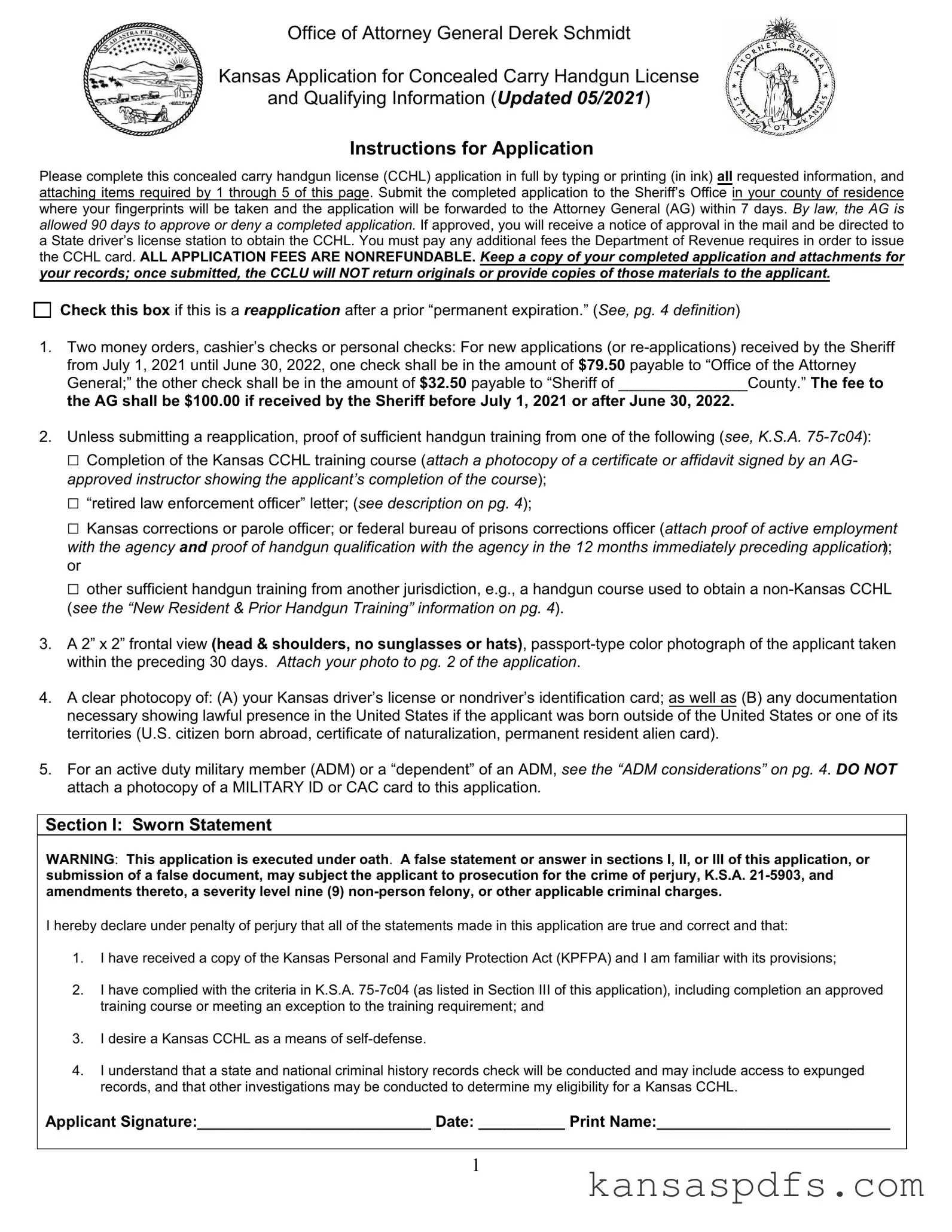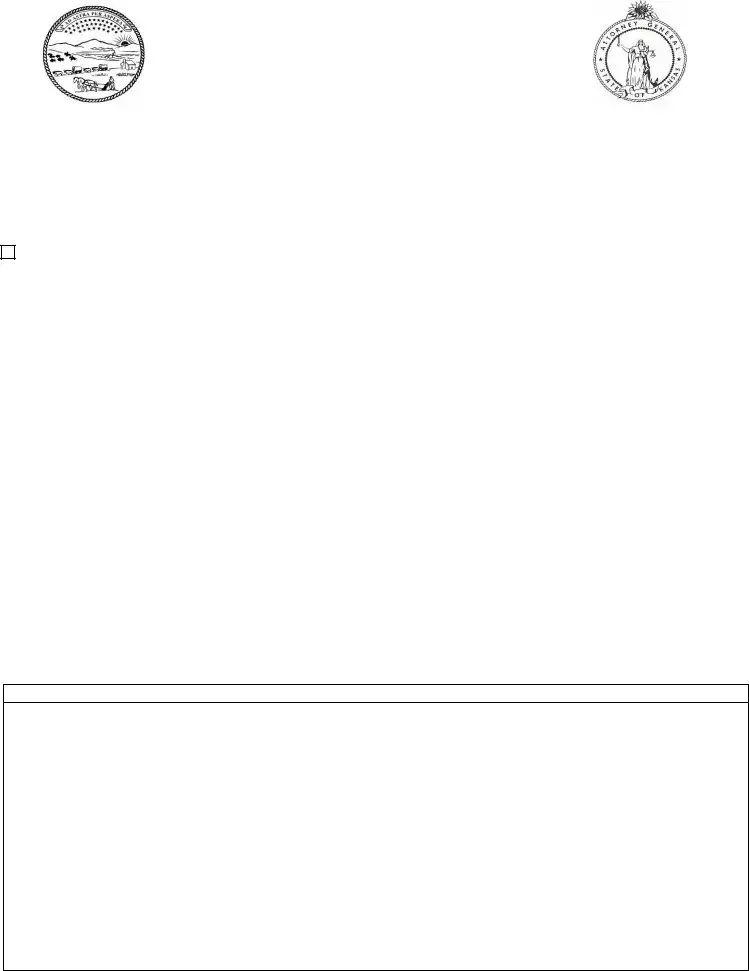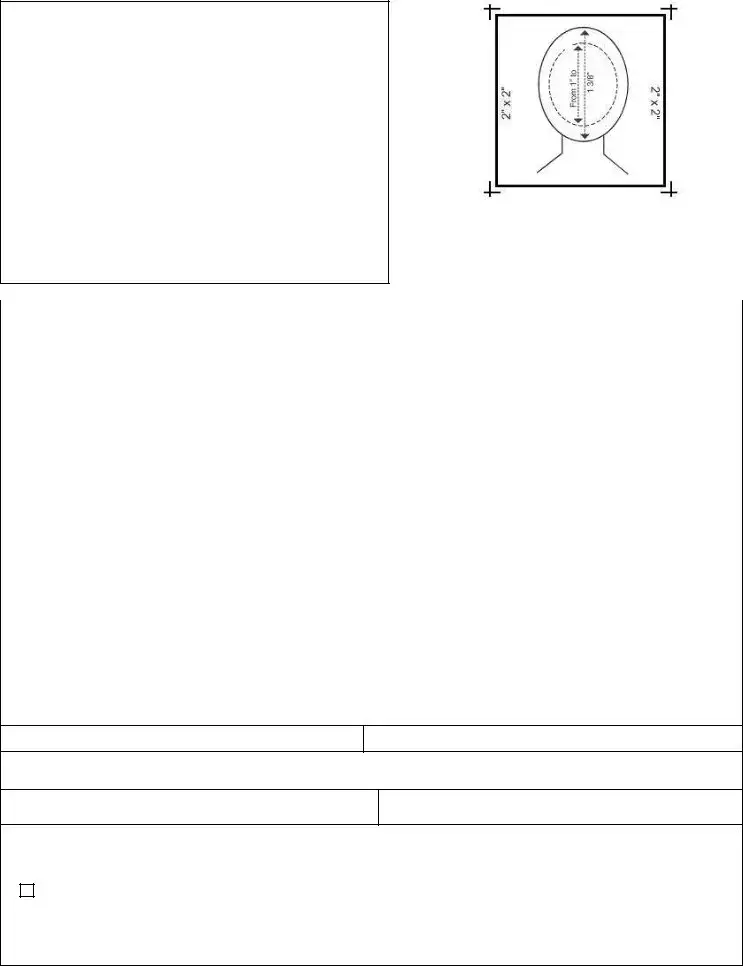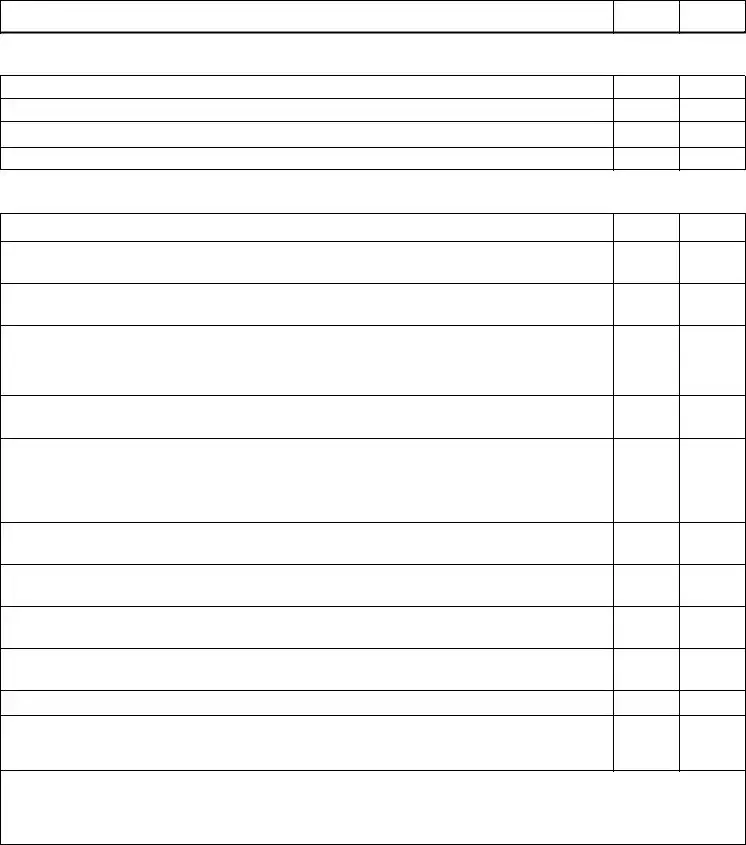Office of Attorney General Derek Schmidt
Kansas Application for Concealed Carry Handgun License
and Qualifying Information (Updated 05/2021)
Instructions for Application
Please complete this concealed carry handgun license (CCHL) application in full by typing or printing (in ink) all requested information, and attaching items required by 1 through 5 of this page. Submit the completed application to the Sheriff’s Office in your county of residence where your fingerprints will be taken and the application will be forwarded to the Attorney General (AG) within 7 days. By law, the AG is allowed 90 days to approve or deny a completed application. If approved, you will receive a notice of approval in the mail and be directed to a State driver’s license station to obtain the CCHL. You must pay any additional fees the Department of Revenue requires in order to issue
the CCHL card. ALL APPLICATION FEES ARE NONREFUNDABLE. Keep a copy of your completed application and attachments for your records; once submitted, the CCLU will NOT return originals or provide copies of those materials to the applicant.
□Check this box if this is a reapplication after a prior “permanent expiration.” (See, pg. 4 definition)
1.Two money orders, cashier’s checks or personal checks: For new applications (or re-applications) received by the Sheriff from July 1, 2021 until June 30, 2022, one check shall be in the amount of $79.50 payable to “Office of the Attorney General;” the other check shall be in the amount of $32.50 payable to “Sheriff of _______________County.” The fee to the AG shall be $100.00 if received by the Sheriff before July 1, 2021 or after June 30, 2022.
2.Unless submitting a reapplication, proof of sufficient handgun training from one of the following (see, K.S.A. 75-7c04):
□Completion of the Kansas CCHL training course (attach a photocopy of a certificate or affidavit signed by an AG- approved instructor showing the applicant’s completion of the course);
□“retired law enforcement officer” letter; (see description on pg. 4);
□Kansas corrections or parole officer; or federal bureau of prisons corrections officer (attach proof of active employment with the agency and proof of handgun qualification with the agency in the 12 months immediately preceding application); or
□other sufficient handgun training from another jurisdiction, e.g., a handgun course used to obtain a non-Kansas CCHL (see the “New Resident & Prior Handgun Training” information on pg. 4).
3.A 2” x 2” frontal view (head & shoulders, no sunglasses or hats), passport-type color photograph of the applicant taken within the preceding 30 days. Attach your photo to pg. 2 of the application.
4.A clear photocopy of: (A) your Kansas driver’s license or nondriver’s identification card; as well as (B) any documentation necessary showing lawful presence in the United States if the applicant was born outside of the United States or one of its territories (U.S. citizen born abroad, certificate of naturalization, permanent resident alien card).
5.For an active duty military member (ADM) or a “dependent” of an ADM, see the “ADM considerations” on pg. 4. DO NOT attach a photocopy of a MILITARY ID or CAC card to this application.
Section I: Sworn Statement
WARNING: This application is executed under oath. A false statement or answer in sections I, II, or III of this application, or submission of a false document, may subject the applicant to prosecution for the crime of perjury, K.S.A. 21-5903, and amendments thereto, a severity level nine (9) non-person felony, or other applicable criminal charges.
I hereby declare under penalty of perjury that all of the statements made in this application are true and correct and that:
1.I have received a copy of the Kansas Personal and Family Protection Act (KPFPA) and I am familiar with its provisions;
2.I have complied with the criteria in K.S.A. 75-7c04 (as listed in Section III of this application), including completion an approved training course or meeting an exception to the training requirement; and
3.I desire a Kansas CCHL as a means of self-defense.
4.I understand that a state and national criminal history records check will be conducted and may include access to expunged records, and that other investigations may be conducted to determine my eligibility for a Kansas CCHL.
Applicant Signature:___________________________ Date: __________ Print Name:___________________________





